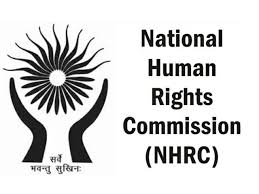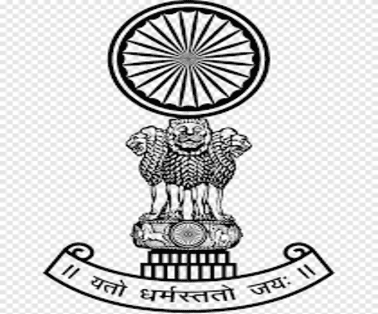A United Nations-recognised global alliance of human rights body has deferred the accreditation of India’s National Human Rights Commission for the second time in a row.
Key Points On Accreditation of National Human Rights Commission
- The re-accreditation process takes place every five years.
- The NHRC’s ‘A’ status has not been re-authorised this year by the Sub Committee on Accreditation (SCA) to the Global Alliance for National Human Rights Institutions (GANHRI).
- Without the accreditation, the NHRC will be unable to represent India at the United Nations Human Rights Council.
- For now, the SCA has recommended that the Indian human rights body improve compliance with the Paris Principles through advocating with the government and parliamentarians for certain legislative amendments
Criteria For Accreditation of National Human Rights Commission
- The Global Alliance of National Human Rights Institutions represents 110 human rights bodies across the world.
- The accreditation status it gives is based on the United Nations’ Paris Principles, which was adopted in 1993.
- The Paris Principles lists six criteria that human rights bodies must adhere to –
- mandate and competence,
- autonomy from government,
- independence guaranteed by a statute or Constitution,
- pluralism,
- adequate resources and
- adequate powers of investigation.
- Human rights bodies that are fully compliant with these principles are given the “A” status. In case they are partially compliant, a “B” status is given.
- The global alliance reviews the accreditation every five years.
Why is the accreditation For National Human Rights Commission on hold?
- Police involvement: The global alliance noted that involvement of the police in functioning of the commission was against the Paris Principles. Police interference raises questions on the independence of the commission.
- Government interference in appointments: The Paris Principles mandated that human rights bodies are “able to operate independent of government interference”. But Indian laws allow the central government to appoint the secretary general of the human rights body.
- Cooperation with civil society: The relationship between the National Human Rights Commission and non-government organisations and human rights defenders was not “effective or constructive, particularly with respect to collaboration”. Regular and constructive engagement with the civil society is essential for human rights bodies to fulfill their mandates
- Lack of pluralism in staff: The composition of the commission was incomplete as three of the six member positions were vacant. The vacant positions were to be held by those with “knowledge of or practical experience in human rights”, including one woman member.
Background
- The SCA had granted the ‘A’ status of accreditation to the NHRC in 2017, after deferring it the year before.
- The year 2016 had marked the first instance when the accreditation had been deferred since the NHRC was established in 1993.
- At that time, the GANHRI had cited the appointment of political representatives and failure in ensuring gender balance and pluralism among NHRC staff as some of its reasons for the deferment.
- The NHRC got the ‘A’ status of accreditation for the first time in 1999, which it retained in 2006, 2011, and in 2017
National Human Rights Commission

Composition of National Human Rights Commission
- It is a multi-member body consisting of a chairperson, five full-time Members and seven deemed Members.
- A person who has been the Chief Justice of India or a judge of the Supreme Court can become a chairman.
- The chairman and members are appointed by the President on the recommendations of a six-member committee consisting of the Prime Minister as its head
- The chairman and members hold office for a term of three years or until they attain the age of 70 years, whichever is earlier.
- The President can remove the chairman or any member from the office under some circumstances.
Key Functions of National Human Rights Commission
- It has all the powers of a civil court and its proceedings have a judicial character.
- It is empowered to utilise the services of any officer or investigation agency of the government
- It can look into a matter within one year of its occurrence
- It has no power to punish the violators of human rights, nor to award any relief including monetary relief to the victim.
- It has limited role, powers and jurisdiction with respect to the violation of human rights by the members of the armed forces.
- It is not empowered to act when human rights violations through private parties take place.
- It can visit any jail or any other institution under the control of the State Government
- It can review the safeguards provided under the constitution or any law for the protection of the human rights and can recommend appropriate remedial measures.
- NHRC undertakes and promotes research in the field of human rights.
GANHRI
- Formerly known as the International Coordinating Committee of National Human Rights Institutions (NHRIs), GAHNRI is a global network of NHRIs.
- It is constituted as a non-profit entity (under Swiss law) and Secretariat support is provided by the Office of the UN High Commissioner for Human Rights (OHCHR).
- It coordinates the relationship between NHRIs and the UN human rights system
To Download Monthly Current Affairs PDF Click here
Click here to get a free demo
Everything About CLAT 2025
Frequently Asked Questions
Where is the headquarter of the National Human Rights Commission?
The headquarter of the National Human Rights Commission is in Delhi
What is the tenure of the chairman of the National Human Rights Commission?
The tenure of the chairman of the National Human Rights Commission is 5 years or upto 70 years of age
Who is the current chairman of the National Human Rights Commission?
Arun Kumar Mishra is the current chairman of the National Human Rights Commission



